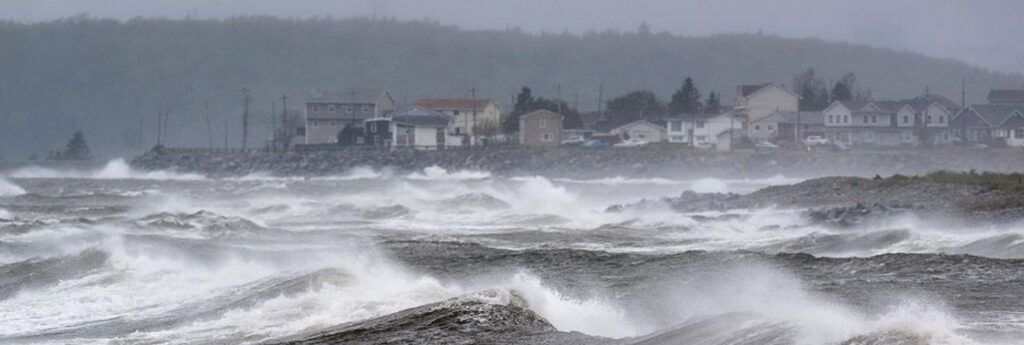After hammering Atlantic Canada, on Sunday post-tropical storm Fiona moved inland into southeastern Quebec, with Environment Canada saying the storm will continue to weaken as it tracks across southeastern Labrador and over the Labrador Sea.
As of 6 a.m. local time, nearly 267,000 Nova Scotia Power customers were still affected by outages, 82,414 Maritime Electric customers remained in the dark and more than 20,600 homes and businesses in New Brunswick were without power, with some provincial utility companies warning it could be days before the lights are back on for everyone.
Newfoundland Power reported outages affecting more than 3,600 customers, as high-end tropical storm force winds knocked down trees and power lines, although Environment Canada said winds would diminish in the morning.
In an early Sunday morning update, Environment Canada said strong winds continued over northern Newfoundland, southeastern Labrador and parts of southeastern Quebec.
A wind warning remained in effect for the western part of the Northern Peninsula of Newfoundland, while storm warnings are in place for parts of the Northeast Gulf and Strait of Belle Isle marine areas.
As Fiona continued to weaken, government officials across Eastern Canada prepared to survey the full scope of the damage left behind.
Nova Scotia Premier Tim Houston, along with several members of his cabinet, were scheduled to tour some of the hardest hit areas of Cape Breton by helicopter Sunday morning.
Prime Minister Justin Trudeau, who cancelled his planned visit to Japan for the state funeral of former prime minister Shinzo Abe, said he will visit as soon as possible, while noting he doesn’t want to displace any emergency teams who are focused on important work on the ground.
Defence Minister Anita Anand said Saturday members of the Canadian Armed Forces had begun preparing to respond before receiving the request for assistance from Nova Scotia, and troops will be deployed to other provinces that ask for help.
No details were provided on the number of troops being deployed, but Anand said reconnaissance was underway to ensure they go where and when they are needed most.

